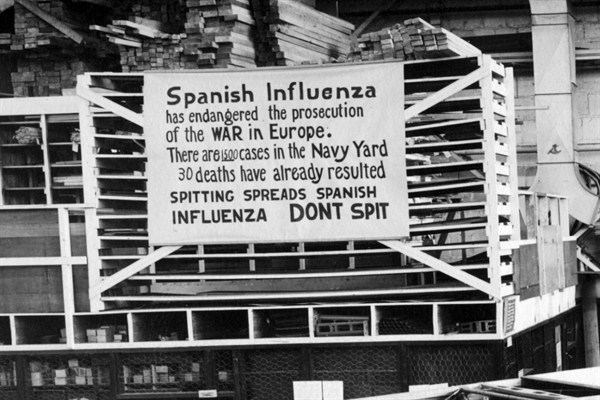Crises, whatever their nature, have a way of putting a mirror up to the face of societies. They throw our angels and our demons into sharp relief, and pandemics are no different. All across the world, throughout history, outbreaks of new and mysterious diseases have spurred the creation of narratives that cast blame on a foreign source of the epidemic by persecuting and stigmatizing immigrants, minorities and other vulnerable groups.
So it is with the novel coronavirus that causes COVID-19, which President Donald Trump and his supporters gleefully refer to as the “Chinese virus.” Given the scale of the current outbreak, political leadership and international solidarity are more important than ever. Unfortunately, as Stewart Patrick writes in his WPR column this week, global leadership is in short supply, just when we need it the most.
But what might an alternate universe look like? Can we learn from history, and find ways to escape these old, painful habits? For this week’s interview on Trend Lines, WPR’s Elliot Waldman digs into these questions with Graham Mooney, professor in the Institute of the History of Medicine at Johns Hopkins University. His most recent book is “Intrusive Interventions: Public Health, Domestic Space, and Infectious Disease Surveillance in England 1840-1914.” He tweets at @histgeoghealth.
If you like what you hear on Trend Lines and what you’ve read on WPR, you can sign up for our free newsletter to get our uncompromising analysis delivered straight to your inbox. The newsletter offers a free preview article every day of the week, plus three more complimentary articles in our weekly roundup every Friday. Sign up here. Then subscribe.
Listen:
Download: MP3
Subscribe: iTunes | RSS | Spotify
Relevant Articles on WPR:
How ‘Medical Nationalism’ Is Undermining the Fight Against the Coronavirus Pandemic
A Rough Guide to Getting a COVID-19 Lockdown Right
Planning for the World After the Coronavirus Pandemic
The Many Ominous Signs About the Shambolic U.S. Response to Coronavirus
Trend Lines is produced and edited by Peter Dörrie, a freelance journalist and analyst focusing on security and resource politics in Africa. You can follow him on Twitter at @peterdoerrie.
To send feedback or questions, email us at podcast@worldpoliticsreview.com.

